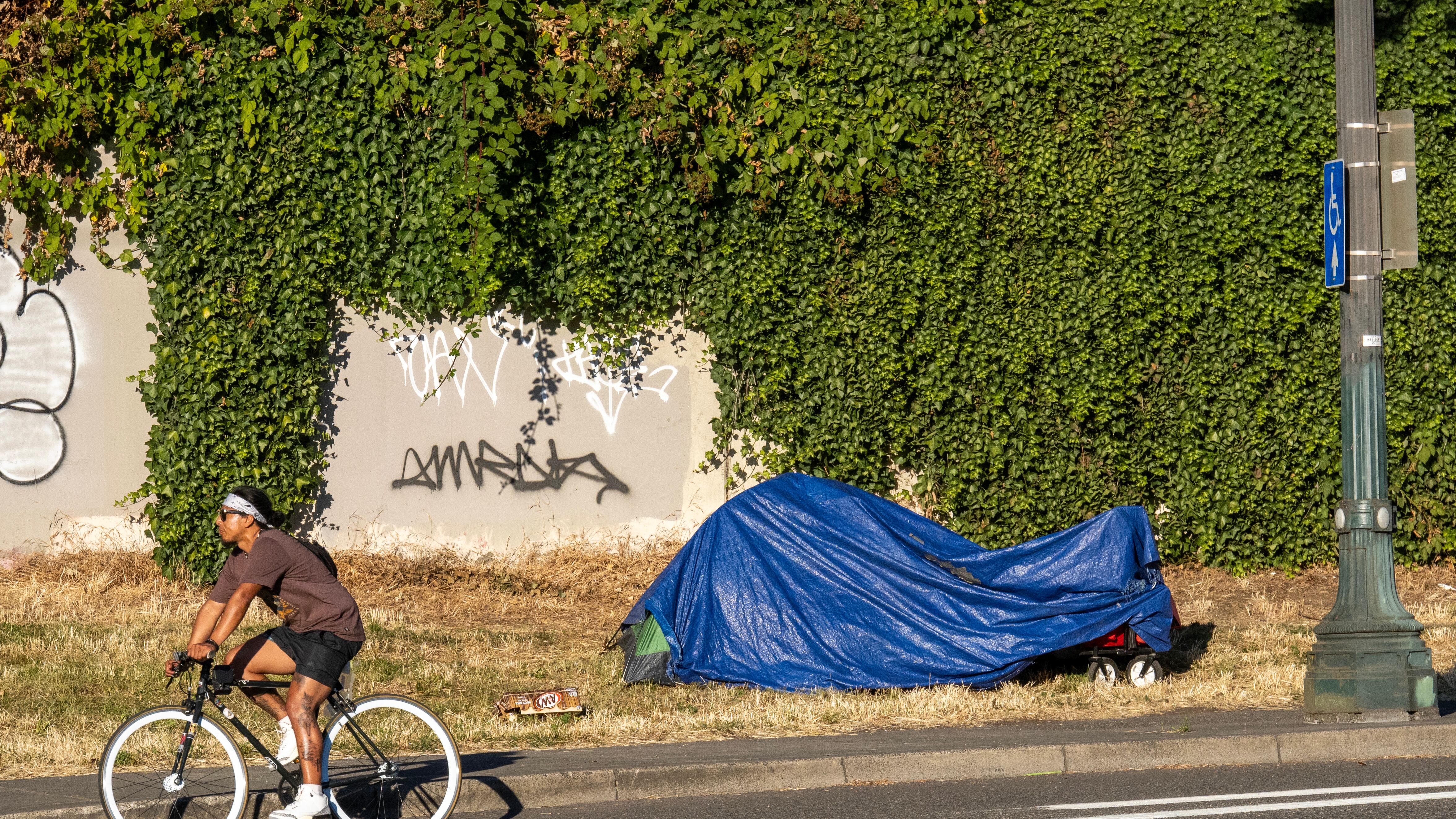To help remediate homelessness, high-earning taxpayers in the tri-county area might be paying less each year, but for longer.
That’s the upshot of recommendations by Marissa Madrigal, chief operating officer at the Metro regional government, to the Metro Council, the seven elected officials who oversee the supportive housing services tax passed in 2020. The 1% marginal tax, levied on any taxable income above $125,000 for individuals and $200,000 for couples, pays for shelter space, rent assistance, advocacy and mental health. Larger businesses also pay.
Metro policymakers revisited the tax recently, in part because it has raised far more than expected and because Multnomah County, the largest of the three metro-area counties, has been slow to disburse funds because of red tape. More than $400 million is going unspent. Madrigal and her staff have been holding meetings with housing experts, local mayors, developers and advocates to determine if the tax should be adjusted.
Madrigal’s recommendation after all those conversations? It should. And it should happen in May 2025, when Metro should put the changes before voters.
Among her prescriptions is that Metro should cut the 1% rate and index the tax to inflation. Because the purchasing power of the dollar tends to sink slowly over time, and companies often adjust wages to compensate, more people meet the $125,000 or $200,000 thresholds each year. Indexing means that the tax’s thresholds would rise annually, based on the inflation rate. Next year, for example, the tax would be levied on any income earned by an individual above $127,000, say, depending on the increase in consumer prices.
Another recommendation: Keep the tax around longer. As approved by voters, the supportive housing services tax is set to expire in 2030. Madrigal recommends extending it so that developers could bank on collecting rent assistance for longer, spurring construction of affordable housing. Also, few of the people Madrigal polled to make her recommendations expect everyone in the metro area to be housed in six years.
“I don’t think any of us think that homelessness will end in 2030,” Madrigal said at a press briefing about the recommendations.
Madrigal also recommends that some portion of Metro’s dollars be used to build, buy and preserve housing, a departure from the original measure, which focused on services. Like all of Metro’s supportive housing services dollars, such money would be directed to Clackamas, Multnomah and Washington counties to come up with strategies for creating more “deeply affordable” housing, she said.
Multnomah County Chair Jessica Vega Pederson warned that any changes to the supportive housing services program must be collaborative. “I want to see us having these conversations in partnership, not in silos,” Vega Pederson said in a statement. She wants a “thorough discussion” of the recommendations with Multnomah County commissioners.
She also wants credit for progress that the Joint Office of Homeless Services, a partnership between the city and the county, has made on spending the piles of cash. “One very important fact is that the Joint Office has made massive strides this past fiscal year in correcting issues that previously hampered spending of Supportive Housing Services dollars—which have gone unrecognized,” Vega Pederson said.
Madrigal’s recommendations come as one of Metro’s two main housing programs peters out. The $652 million Affordable Housing Bond program, approved by voters in 2018 and funded by property taxes, will allocate its final dollars next year, she said. It’s on track to build 20% more units than planned, with about 1,500 completed and another 3,200 under development, according to Metro figures.
Despite that success, research shows that voters won’t support a new bond, Madrigal said. They are more likely to support the extension of an existing tax (one that hits high earners only), she said. Prolonging it would keep Metro in the housing business longer, even as appetite for new bonds wanes.
“People are more supportive of looking at our existing taxes and expanding the uses,” Madrigal said. “They prefer that to a new property tax.”
But the commitment is there, Madrigal said. “Homelessness is the public’s No. 1 priority,” she said. “When you look at public opinion surveys, people can agree on almost nothing except that this is an important topic.”
Madrigal was candid about the public’s attitude toward taxes and government.
“Folks feel that government is off track,” Madrigal said. “They’ve been very willing to support tax increases for the betterment of the community, but they are starting to reach their own limits. People at home are facing inflation, high rent, high costs for food, and they’re having to do more with what they have instead of going out and getting more. I think this is an opportunity for government to show that we can do the same thing.”
